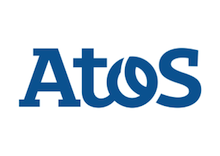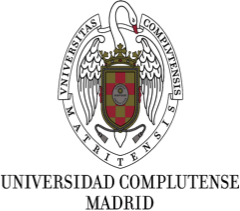Consortium
The PANACEA project gathers the following partners:
- Centre National de la Recherche Scientifique (CNRS),
- International Research Institute for Autonomic Network Computing (IRIANC),
- Imperial College London (IMPERIAL),
- ATOS Research Spain (ATOS),
- IBM Haïfa,
- QoS Design,
- Universidad Complutense de Madrid (UCM).
The role of each partner is described below.
 |
Centre National de la Recherche Scientifique (CNRS) |
LAAS-CNRS (www.laas.fr) is a particular research unit of CNRS, with about 600 researchers, engineers, managers and Ph.D. students. The research work of the SARA team (http://www.laas.fr/SARA-EN) at LAAS is focused on next generation networks and their applications, with contributions ranging from the development of methods, models and tools, to the design and implementation of architectures, protocols and services.
Role in PANACEA
CNRS is the coordinator of PANACEA. CNRS will also contribute to the definition of the monitoring system, and to the design of dynamic reconfiguration mechanisms for overlay networks. CNRS will participate to the definition of the use cases for the communication system, and to the simulation of overlay networks. Finally, CNRS will participate to dissemination activities by publishing research outcomes in peer-reviewed journals and conferences in the field.
Key personnel: Dr. Olivier Brun, Dr. Michel Diaz, Dr. Jean-Marie Garcia, Dr. Urtzi Ayesta
 |
International Research Institute for Autonomic Network Computing (IRIANC) |
The mission of the International Research Institute for Autonomic Network Computing (www.irianc.com) is to support science, research, innovation, knowledge and technology transfer in the area of Autonomic Network Computing (ANC) systems. At the institute scientists, researchers, and graduate students from Germany, Italy, Austria, USA, Portugal and Spain are collaborating.
Role in PANACEA
IRIANC will lead activities focusing on Machine Learning and Proactive Autonomic Resource Management in large scalable clouds. IRIANC's expertise in networks, virtualization, distributed systems will contribute to the definition of the Virtualization Framework for implementing Autonomic Cloud Computing Infrastructures. IRIANC's expertise in large computation clusters, and Machine Learning will be valuable in building an integrated test-bed and conducting large-scale experiments for predicting anomalies in the cloud resources and proactively triggering defensive actions (migration, reconfiguration and rejuvenation ) for improving the availability, QoS and security of large clouds. IRIANC will publish research outcomes in relevant journals and conferences.
Key Personnel: Dr. Dimiter. R. Avresky, Dr. Erik Maehle.
|
|
Imperial College of London (IMPERIAL) |
Imperial College London (http://www.imperial.ac.uk) is one of the world’s leading research universities, typically ranked as number one in Europe for Engineering, and third in Europe in Science and Engineering. The Intelligent Systems and Networks research group at Imperial has world class recognition in Internet technologies, agents, robotics, and neural engineering, and has conducted substantial research since 2003 on autonomic communications in the course of the EU FP6 EU project CASCADAS, the Marie Curie Action SAPAD project, and the national UK EPSRC Project on Self-Aware Networks and Quality of Service. IMPERIAL is also recognized as one of the world leaders in performance modelling and evaluation of networks and systems, and in measurement and testing of network prototypes through large-scale test-beds.
Role in PANACEA
IMPERIAL will lead activities focusing on the creation of efficient monitoring and networking methods for large clouds. IMPERIAL's expertise in networks, machine learning, and distributed systems will support tasks devoted to the proactive autonomic management. IMPERIAL will also contribute to PANACEA by building an integrated test-bed and conducting large-scale performance evaluations and publish research outcomes in relevant journals and conferences.
Key Personnel: Dr. Ricardo Lent, Prof. Erol Gelenbe, Dr. Omer Abdelrahman
 |
ATOS Research Spain (ATOS) |
Atos (http://atos.net) is an international company focused on Services for Information Technologies (IT) and currently it employs 78,500 people. Atos Research and Innovation (http://www.atosresearch.eu/), as part of Atos Spain, concentrates on the realisation of international projects, combining the most up-to-date technological developments (in areas such as cloud, smart objects, services, etc.) with a high awareness of the human factors (education sciences, disability-related issues, etc.). The Service Engineering & IT Platforms (SEIP) Lab focuses its research in Cloud Computing, Service and Software Engineering and Open Source technologies. It investigates advanced capabilities of Cloud Infrastructures, Software tools and Open Source communities as well as new tools and techniques for advances PaaS and SaaS. The Service Engineering & IT Platforms has been involved in several past and on-going European and National initiative coordinating focused R&D projects such as OPTIMIS, BonFIRE, Cloud4SOA, SOA4ALL, SmartLM, BEinGRID, QualiPSo and ALERT.
Role in PANACEA
ATOS will contribute to the autonomic Cloud Management, and to the definition of the monitoring system. ATOS will also play a key role in the definition of use cases, as well as in dissemination and exploitation activities.
Key personnel: Daniel Field, Dr. David García Pérez, Josep Martrat.
 |
IBM has the world's largest IT research organization, with more than 3,000 scientists and engineers working in 9 labs in 7 countries. IBM Israel Science and Technology Limited is better known as IBM Research – Haifa (http://www.research.ibm.com/labs/haifa/). Since it first opened as the IBM Scientific Centre in 1972, the Haifa lab has conducted decades of research that have proved vital to IBM’s success. The Distributed Middleware (DM) group is part of the Software and Services department, which is involved in developing software technologies to exploit advances in computing infrastructure to benefit businesses. The DM group focuses on scalable and highly available infrastructure for IBM Middleware, such as extreme transaction and events processing, high throughput messaging technologies, and technologies for providing QoS. In addition, the technologies the DM group develops enhance dependability in very large-scale multi-tier environments and support hosting web applications and services in large-scale compute clouds.
Role in PANACEA
IBM will contribute to the autonomic Cloud Management, and will contribute to the implementation and evaluation of the PANACEA solution. IBM will also play a key role in the definition of use cases.
Key personnel: Dr. Eliezer Dekel, Roie Melamed, Avi Teperman, Yoav Tock
 |
QoS DESIGN |
QoS Design (www.qosdesign.com) is an independent French software company dedicated to providing innovative solutions that improve the performance of telecommunication networks by using simulation and optimisation techniques. With more than 25 years of research in stochastic modelling techniques and optimisation applied to the control of large scale systems and telecommunication networks, the researchers of QoS DESIGN propose high valued solutions for the control of large scale telecommunication systems. QoS Design develops and sells a consistent software suite for network modelling, simulation and planning. This software suite, called NEST (Network Engineering and Simulation Tool), is the single network planning software providing both unique simulation techniques and powerful network optimization algorithms in an integrated workbench.
Role in PANACEA
QoS DESIGN will contribute to the definition of dynamic reconfiguration mechanisms for overlay networks. QoS DESIGN will also extend the NEST simulator to evaluate the proposed mechanisms in the proactive management of large-scale systems.
Key Personnel: Dr. Anouar Rachdi, Dr. Ahmad Al Sheikh
 |
Universidad Complutense de Madrid (UCM) |
The Universidad Complutense de Madrid (http://www.ucm.es) is the largest and most renowned university in Spain, with over 700 hundred years of history. The research group involved in PANACEA is the Distributed Systems Architecture Research Group (http://dsa-research.org), which is part of the Computer Science Faculty. DSA-Research group conducts research in advanced distributed computing and virtualization technologies for large-scale infrastructures and resource provisioning platforms, being involved in several research and development initiatives on Cloud Computing.DSA-Research group founded the OpenNebula Project, widely used open-source technology for building cloud infrastructures and foundation of the Cloud solution in PANACEA; is a co-founder of the OGF Working Group on Cloud Computing Interface; participated as technical activity leader in RESERVOIR, flagship of European research initiatives in virtualized infrastructures and cloud computing; and participates in the main European projects in cloud computing, such as BonFIRE, 4CaaSt and StratusLab.
Role in PANACEA
UCM will contribute to the autonomic Cloud Management based on OpenNebula, and will contribute to the implementation and evaluation of the PANACEA solution.
Key Personnel: Dr. Ignacio M. Llorente, Dr. Eduardo Huedo

